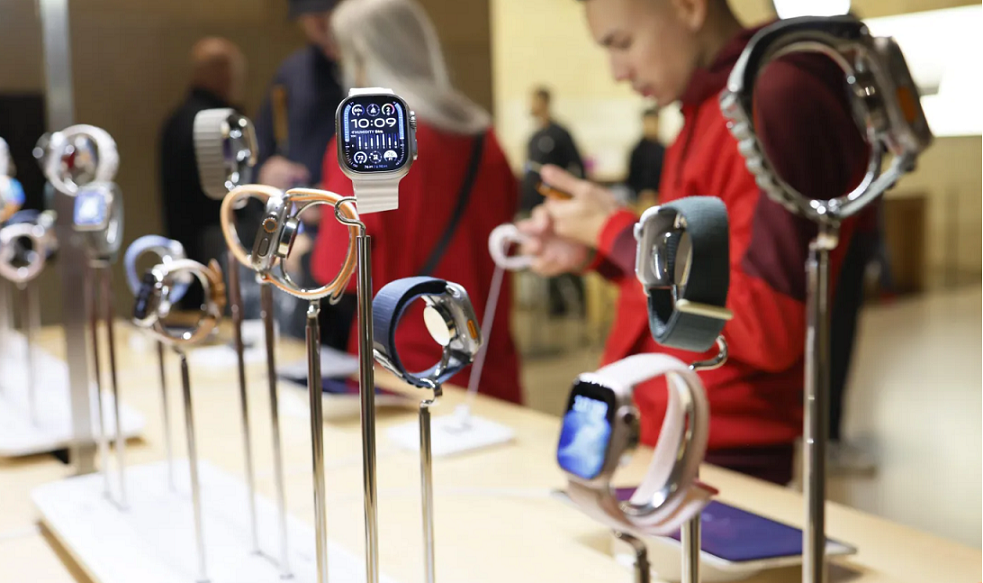
Apple has announced that it will cease the sale of its latest smartwatches, the Apple Watch Series 9 and Ultra 2, in the US following a patent dispute. This decision, coming just days before Christmas, will significantly impact the tech giant's holiday season sales, as these models contribute substantially to Apple's revenue, generating over $17 billion in fiscal 2023.
The patent dispute revolves around a blood oxygen sensor, a feature integral to the Series 9 and Ultra 2 models, which Masimo Corp. claims to have invented. The International Trade Commission (ITC) ruled in October that Apple infringed upon Masimo's patents, leading to the directive to halt the sales of the contested devices. The ban is pending a presidential review, expected to conclude on Christmas Day.
Masimo, a California-based health monitoring technology company, lauded the decision, stating that it demonstrates that "even the world's most powerful company must abide by the law." The patents in question pertain to the calculation of a person's blood oxygen saturation, a key health feature that has become a critical selling point for Apple Watch.
The sales halt will extend beyond the Series 9 and Ultra 2 models, affecting older Apple Watch models, including the Series 8, which is still available in refurbished condition. The impact on Apple's overall revenue is significant, given the central role of the Apple Watch in its Wearables, Home, and Accessories business, generating over $40 billion annually.
Apple's shares experienced a dip, falling as much as 1.6% in New York on Monday, following the news. Masimo, on the other hand, saw an increase in its stock value. The devices will be removed from Apple's online store on Thursday at 3 p.m. New York time, with the company assuring that existing customers will not be affected.
The looming ban has prompted Apple to appeal the ITC ruling, with the company maintaining that the decision is erroneous. The Biden administration, specifically US Trade Representative Katherine Tai, is overseeing the review, which is set to conclude on Christmas Day.
Notably, this situation is unprecedented for Apple, forcing the company to stop selling a core product in the US, particularly during a crucial sales quarter. Past disputes have led to sales halts in specific regions, but the current scenario poses a more significant challenge for the tech giant.
Two executives involved in Apple Watch development are also making headlines in this context. Steve Hotelling, a key witness in the Masimo lawsuit, is retiring, while Tang Tan, chief of Apple Watch product design, plans to depart in February. These departures, although unrelated to the patent dispute, add another layer of complexity to Apple's current challenges.
While the watches will no longer be available directly through Apple's channels, they will continue to be sold by third-party retailers, potentially mitigating the impact on Apple's fiscal first-quarter sales. The Cupertino-based company, with approximately 270 stores in the US, has been preparing for the disruption by updating in-store signage to focus on Apple Watch without displaying specific photos of the Series 9 and Ultra 2.
As Apple navigates this unexpected setback, the resolution of the patent dispute will have far-reaching implications, not only for the company but also for the broader landscape of intellectual property rights and the tech industry's competitive dynamics.